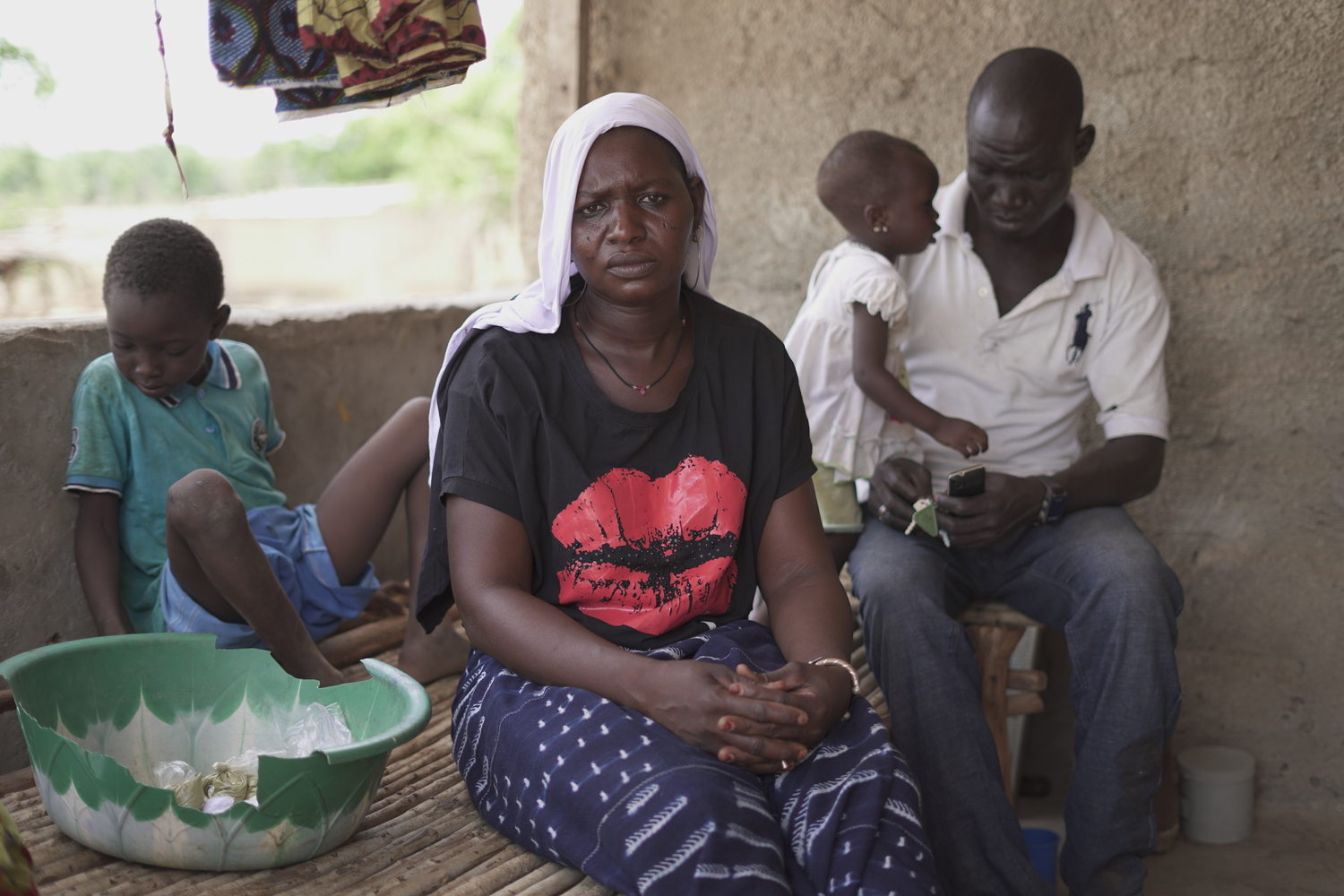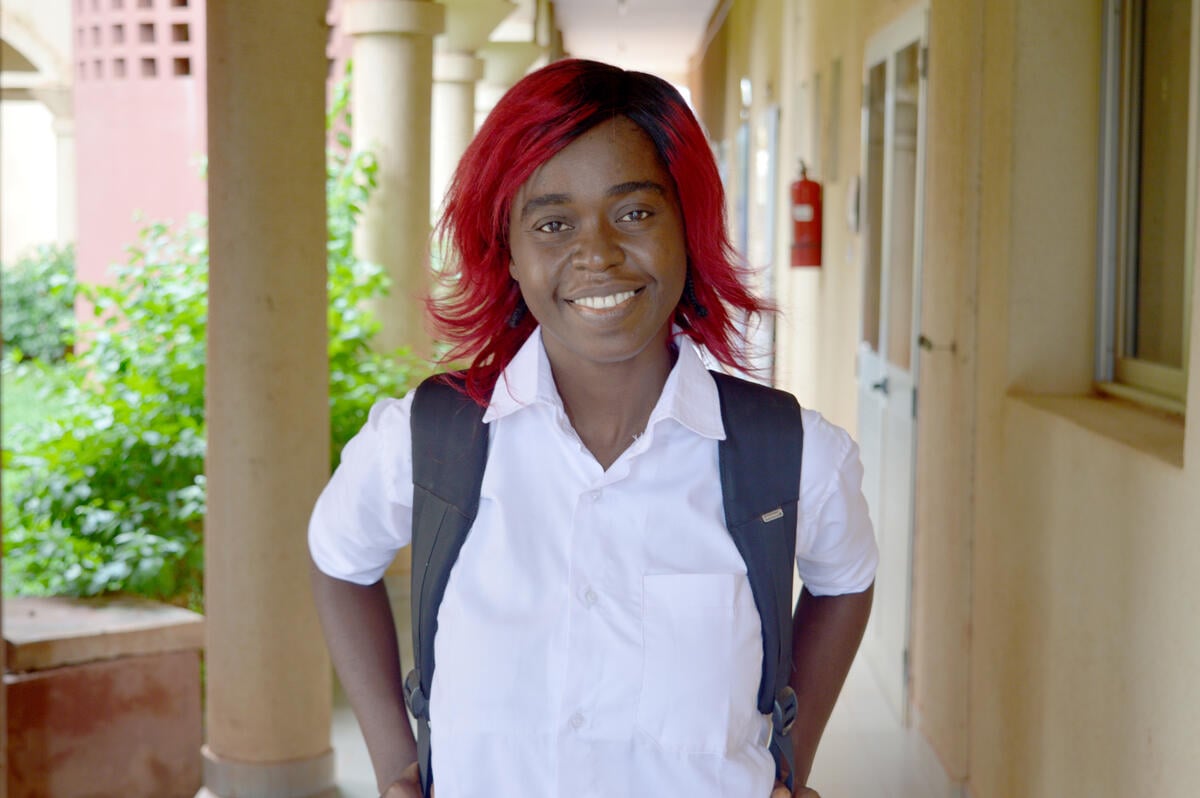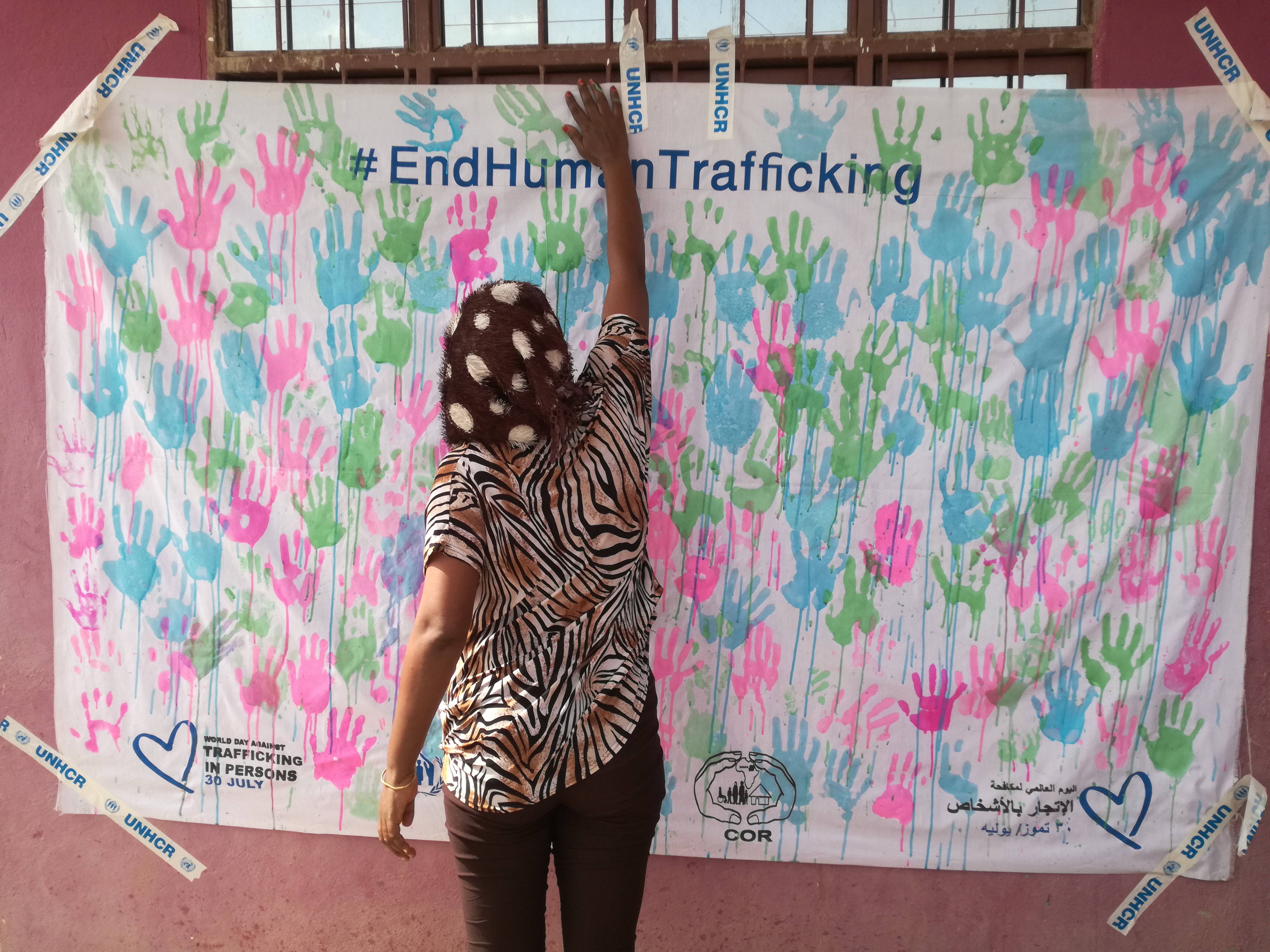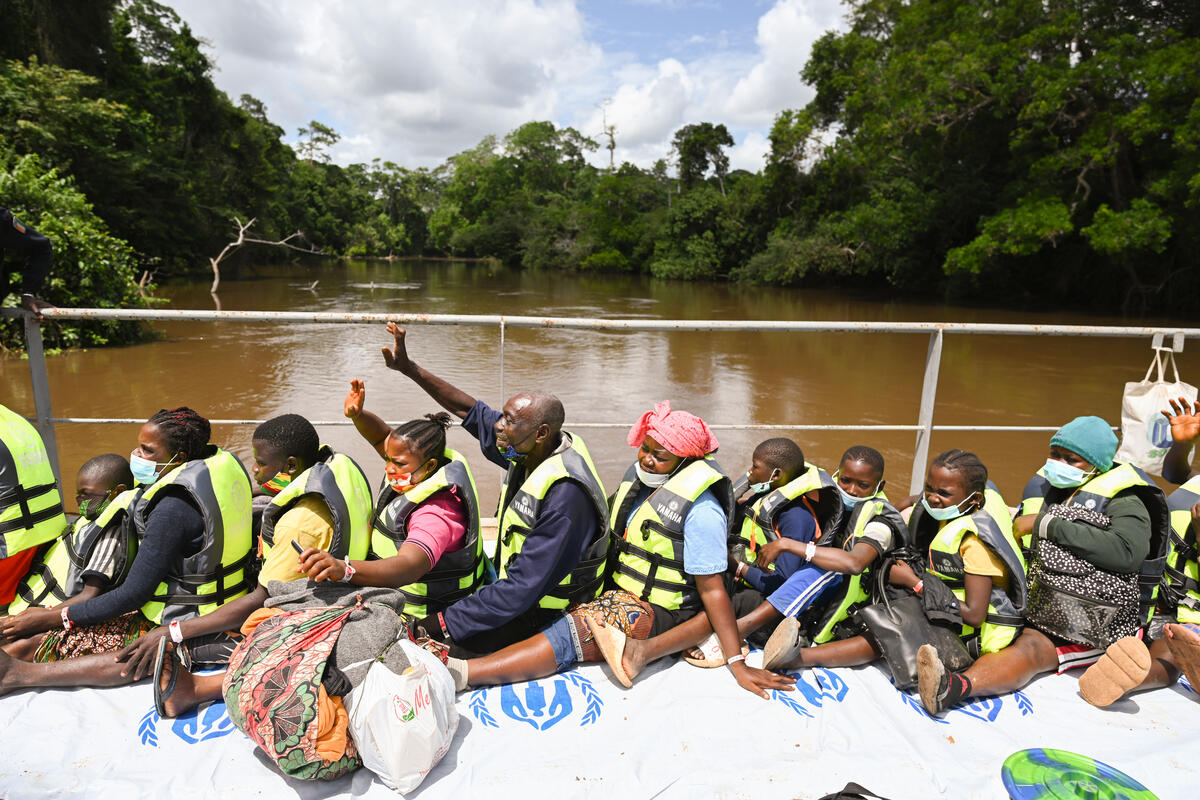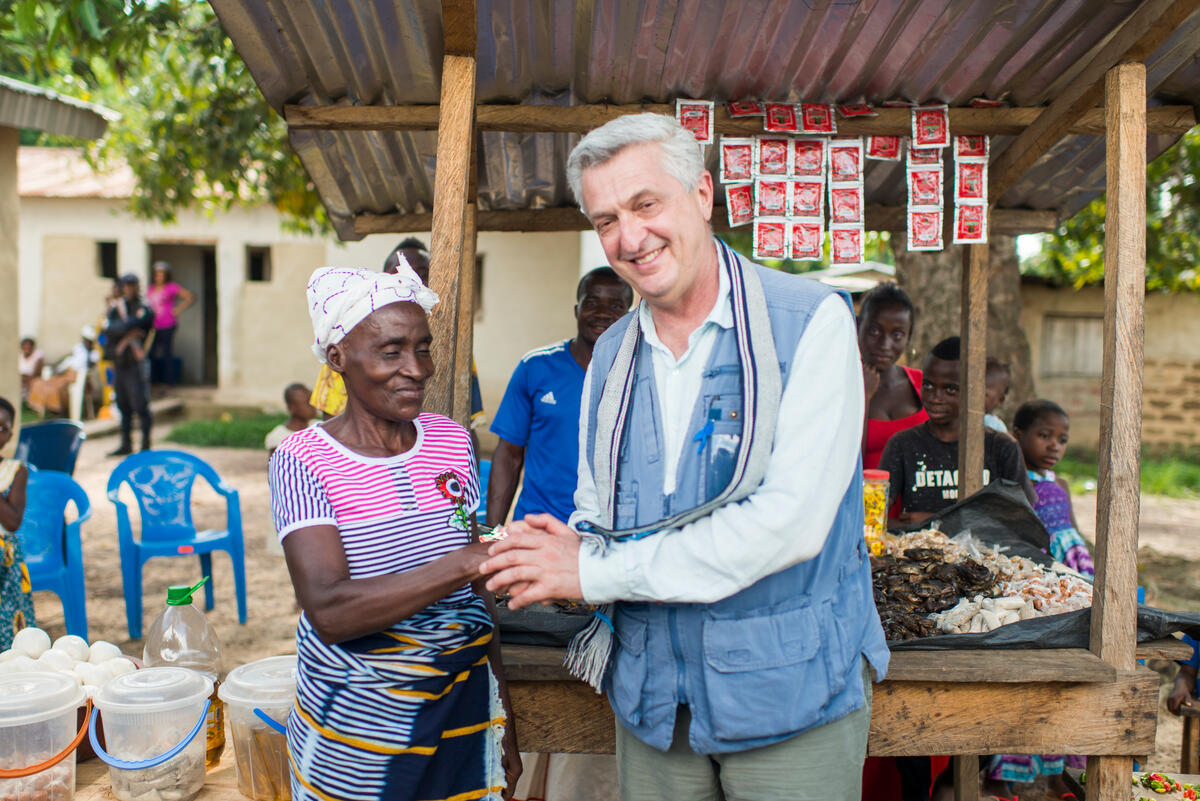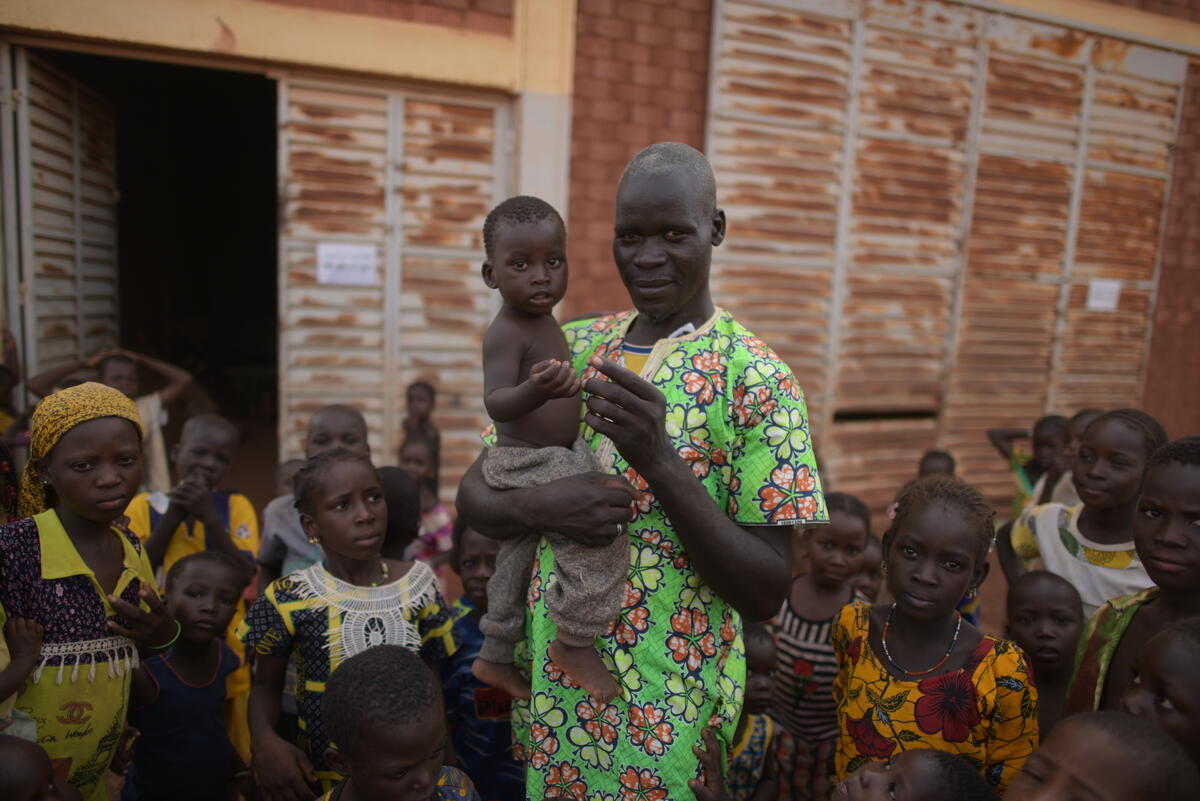Ivorian influx doubles size of Liberian border town
Ivorian influx doubles size of Liberian border town
BIMPLAY, Liberia, Nov 23 (UNHCR) - For generations, they lived side by side, divided only by the Cestos River that forms the border between Liberia and Côte d'Ivoire. But in the last two weeks, the Liberian inhabitants of Bimplay town have taken in thousands of their Ivorian neighbours, sharing their limited resources with these unexpected guests.
An estimated 19,000 Ivorians have fled into eastern Liberia since early November, fearing resurgent fighting between government and rebel troops. Although the exodus has slowed in recent days, on Tuesday alone, more than 100 were still reported crossing through entry points like Bimplay.
With a local population of 2,350, Bimplay has more than doubled in size with the arrival of more than 3,000 Ivorian refugees since November 6. UNHCR and its implementing partners are currently assessing and registering the refugees.
"Liberians have been very receptive to the new arrivals, and collaboration with the government is ongoing to provide adequate assistance to them," said Fidelis Swai, who heads UNHCR's office in Saclepea, north-eastern Liberia.
Every morning, the few people in Bimplay who own radios turn them on. Big circles form immediately around these houses, full of people desperate for some news on Côte d'Ivoire.
Estelle, 14, crossed into Liberia with her little sister on a canoe five days ago. The sisters originate from Zouan-Hounien town in western Côte d'Ivoire and said most of people from their village have abandoned their houses and sought refuge in Liberia. In Bimplay, the girls are being hosted by a local family, where they share a small room with five other children. Overcrowding is a reality in this border town, which has only 165 small houses.
Asked about her plans, Estelle said, "The situation in my country is not clear, I prefer to wait here." She added that young Ivorian refugees visit the border with Côte d'Ivoire regularly to gather information on the security situation in their country. "We talk to the people who transported us by canoe to see if they have some information," she said.
In the meantime, she is trying to help out her host family by making clothes for them. "It is my small contribution to these kind people who share with me their plate of rice every day," said the trained tailor.
In the same way, many Ivorian men are helping the local community in farming and small business activities. George Buleh, 38, hails from the Ivorian border town of Banplay. Every morning, he goes to the fields with his host family in Bimplay. "My friends are good to me, but I feel embarrassed every day asking them for permission to cultivate a piece of land so that my three children and I can have something to eat."
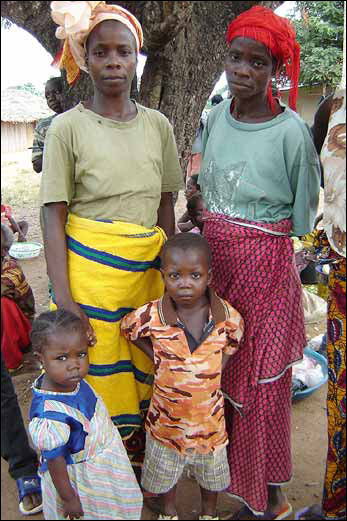
Safe drinking water is also in short supply. One water pump is available in Bimplay but is not operational. To accelerate the provision of drinking water in all the refugee-receiving towns along the border, UNHCR has involved more implementing partners in the construction and rehabilitation of shallow wells and hand pumps in the host communities.
UNHCR and Nimba county's superintendent have identified a site 50 km from the border for a transit centre that could be converted into a refugee camp for 10,000 people. Broken bridges and roads remain a major obstacle. Priority will be given to the rehabilitation of roads linking the border host towns and the transit centre so that refugees can be moved further inland if the need arises.
By Francesca Fontanini
UNHCR Liberia

